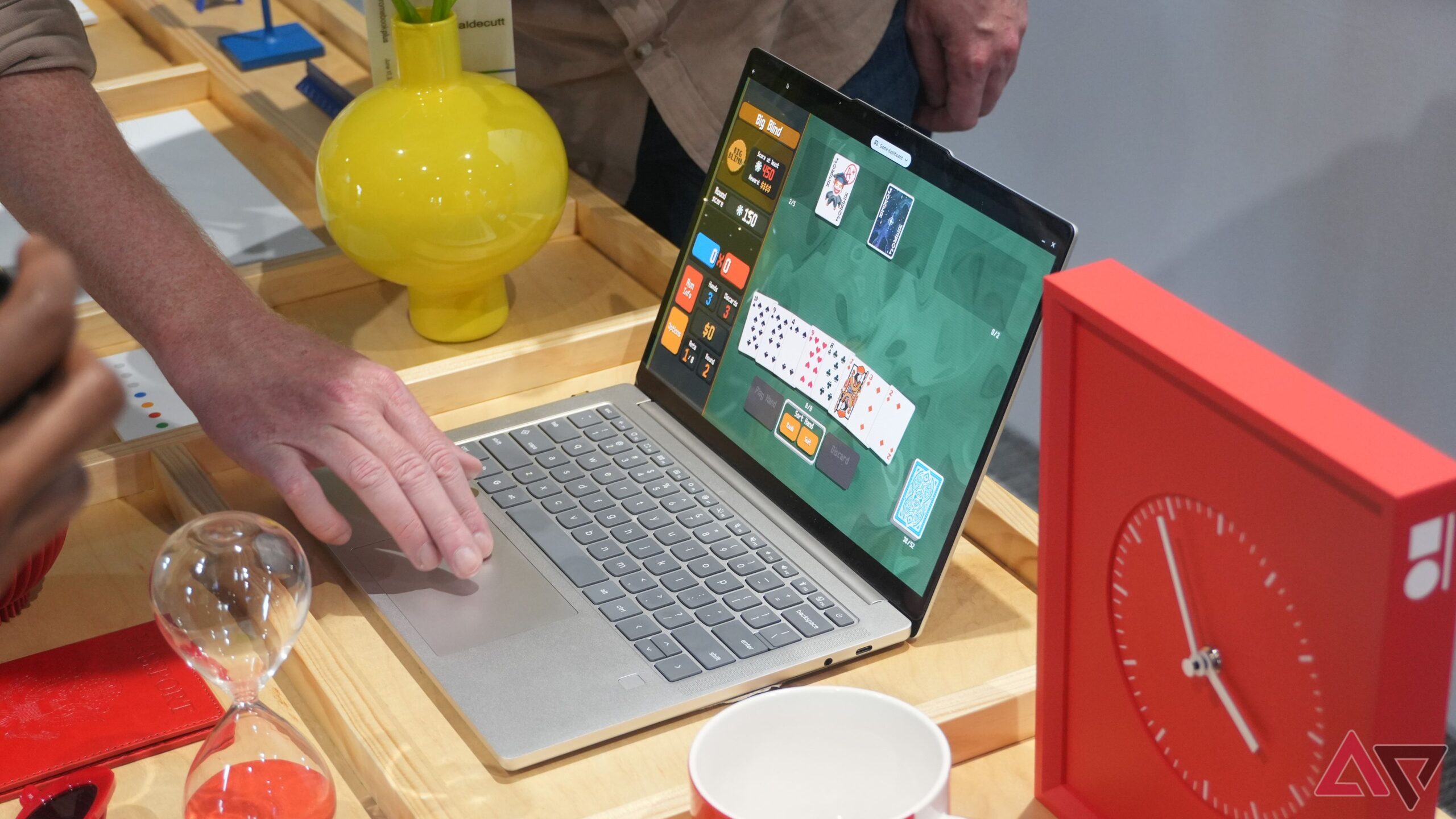The powerful hardware and flexible software of today’s top smartphones almost make you wonder if they’ll ever fully re-evolve into laptops. In the meantime, that’s almost what’s happening with the just-launched Lenovo Chromebook Plus 14, which blurs the line between professional laptop and productivity-focused mobile device even further.
On the software side, it’s the first to implement some of the Chromebook Plus classification’s best features. On the hardware side, it breaks new ground for efficiency-forward laptops that aren’t bound by Microsoft Windows. The announcement comes as Lenovo continues to strengthen its position in the laptop market with innovative designs that cater to both professional and casual users.
Revolutionary Hardware Design
Lenovo, of course, has plenty of experience producing some of the industry’s most recognizable laptops, and this one adds a unique twist. At the heart of Lenovo’s new 14″ Chromebook Plus lies a MediaTek Kompanio Ultra system-on-a-chip that has multiple implications for the form factor and its effectiveness.
It’s essentially a renamed Dimensity 9400+ (minus one of its twelve Arm Immortalis-G925 GPU cores). This is the first Chromebook Plus SoC based on ARM mobile technology instead of the X86/64 architectures of AMD and Intel chips. That marks a win for MediaTek over its competitors, as enthusiasts have been hoping for Snapdragon 8 Elite laptops for a while.
The hardware’s impressive components include eight high-speed cores in addition to a MediaTek NPU 890 AI chip rated at 50 TOPS.
This marks a major advantage over less complex mobile chipsets in terms of raw power and forward-thinking AI model capabilities. It also provides a significant efficiency boost compared to the more power-hungry PC microchips typically found in laptops.
Advanced Features and Specifications
But the CPU isn’t the only green flag hinting this might be the Chromebook of the future. It comes with up to 16GB of RAM, 256GB of storage, and an FHD+ OLED touch-optional display capable of producing the entire DCI-P3 gamut. That’s an impressive combination of specs that you won’t find on any other Chromebooks. The hardware rounds out with a backlit keyboard, an optional fingerprint reader, and premium build quality and materials including a resilient aluminum frame.
The Chromebook Plus certification exists to ensure a baseline of high performance, versatile functionality, and user-friendly design within advanced laptops running the lightweight Chrome OS. To that end, Google’s taking advantage of Lenovo’s excellent new release to highlight some of its most carefully crafted new features, built largely around AI models and predictive behavior.
AI-Powered Innovations
For example, the Lenovo Chromebook Plus 14 is the first in its class with AI smart grouping for organizing tabs and documents conveniently, but with next to no user input. It also includes a newly revamped in-gallery photo editor that leverages the powerful AI NPU to perform typically resource-intensive edits with quickness and ease.
In addition to those currently Lenovo-specific features, all Chromebook Plus models are slated to receive powerful updates, including Select to Search and Text capture, which are essentially versions of Circle to Search ported over to the Chrome OS ecosystem.
Market Impact and Future Prospects
Boasting a whopping 17 hours of battery life, the new 14″ Chromebook Plus from Lenovo could finally prove how useful the ever-more-refined Chrome OS clamshell platform can be. Just as impressive, the top-shelf edition can be had for just $750 from retailers like Best Buy. That isn’t exactly cheap, but it also isn’t the highest Chromebook price tag, despite the device boasting some of the most advanced hardware and software possible.
This development follows a growing trend in the tech industry to merge the portability and efficiency of mobile devices with the power and functionality of traditional laptops. According to industry experts, the success of Lenovo’s new Chromebook could influence other manufacturers to adopt similar ARM-based architectures, potentially leading to a shift in the laptop market dynamics.
As the tech world continues to evolve, Lenovo’s latest offering represents a significant step forward in the integration of AI and efficiency in consumer electronics. The move represents not only a win for Lenovo and MediaTek but also a promising future for consumers seeking powerful yet efficient computing solutions.
